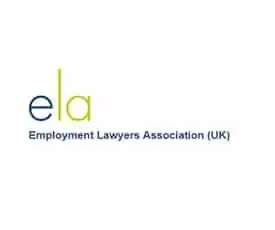Studying To Be A Solicitor? Here Is What You Need To Know
If you are contemplating becoming a solicitor, it is vital that you first understand what it is they do. A solicitor is generally the first point of contact for a client seeking legal services. They listen to the client’s grievances and provide basic legal advice. However, should the case escalate and proceed to court, a solicitor acts as a liaise between the client and the barrister representing them throughout the case. Part of their job description involves collecting evidence, performing legal research, and advising the barrister ahead of trials and court hearings.
Skills You Need To Become A Solicitor
Studying to become a solicitor is a competitive, expensive, and rather challenging process. To qualify, you need to be very strong academically – that means having good GCSE-level, A-level and degree grades.
With so many people aspiring to become a solicitor specialising in employment law, you must have a strong academic background if you are to proceed any further.
At the same time, you must possess excellent communication, interpersonal and social skills considering that you will be spending a lot of time liaising with colleagues, clients and various professionals.
Public speaking skills are also a must-have since you will be spending a lot of time speaking in front of large groups of people.
Soliciting is fast-paced, and situations can change at a moment’s notice. As such, you must be able to handle large amounts of information within short periods. It is also worth noting that you’re going to have lots of stamina and energy if you want to pursue a career in soliciting.

The Academic Stage
Most people looking to become solicitors start by undertaking a qualifying law degree at the undergraduate level.
However, this isn’t essential to becoming a solicitor. It is worth noting that non-law graduates should complete the law conversion course, which is a one-year, full-time course, once they graduate with an undergraduate degree.
Once you’ve completed a law conversion or degree course, the stage is the Legal Practice Course, which is another year of training where you are taught the vocational aspects of being a solicitor.
Training Contracts
When done with these courses, the next thing is securing employment. The route most people take involves completing a training contract at a law firm to qualify and practice as a trained and qualified solicitor.
Training contracts last two years and are comprised of several seats in various departments. Once complete, most trainee solicitors will join a firm of local solicitors as newly qualified.
The Paralegal Route
It is not uncommon for someone wanting to become a solicitor to obtain a contract as a paralegal. There are firms, especially smaller and regional ones, that have been known to take on trainees using this route.
However, this approach is not well established. Becoming a paralegal does not always mean that you will work your way up to the solicitor level.
Disclaimer: The contents of this article are for information purposes only and should not be relied upon as formal legal advice. We cannot accept responsibility for any loss as a result of acts or omissions taken in respect of this article. Specific legal advice should be sort tailored to the individual circumstances in all cases.
For any information relating to our services please give us a call and we will be very happy to help.
What Can We Help With?
- Settlement and compromise agreements
- Unfair dismissal advice
- Employment tribunal advice
- Discrimination claims
- Redundancy advice
- Breach of contract
- Advice on maternity and paternity leave
- Book A Free Consultation
- Understand Your Situation
- Know Where You Stand
Our 3 Step Process
Book A Free Consultation
This complimentary consultation allows our employment solicitors to understand more about your specific situation so we can provide you with the best advice possible.
We’ll lay out your options and will advise you upfront of any costs involved.
Our 3 Step Process
Understand Your Situation
Understanding your unique situation will help us to understand how we can help you move forward with more clarity.
Although everyone’s situation is unique, we’ve most likely dealt with similar scenarios before.
Our 3 Step Process
Know Where You Stand
Whether that’s pursuing unfair dismissal, negotiating a larger settlement agreement, starting a claim for discrimination or simply having peace of mind.
We’ll help you feel clearer and more settled.

0 / 127
5 star reviews

0 / 50
5 star reviews
Yell.com

0 / 231
5 star reviews
ReviewSolicitors
Client Feedback
We have formed many long-lasting relationships by listening to feedback and understanding our clients’ needs. Our employment law advice provides exceptional care and tailored support.
Award Winning Service
Our award-winning legal services are recognised for excellence, professionalism, and client success. We provide tailored strategies with a focus on precision, integrity, and results.
Contact a Lawyer Today
Davidson House,
Forbury Square,
Reading, Berkshire,
RG1 3EU
0118 914 5622
info@dphlegal.com









